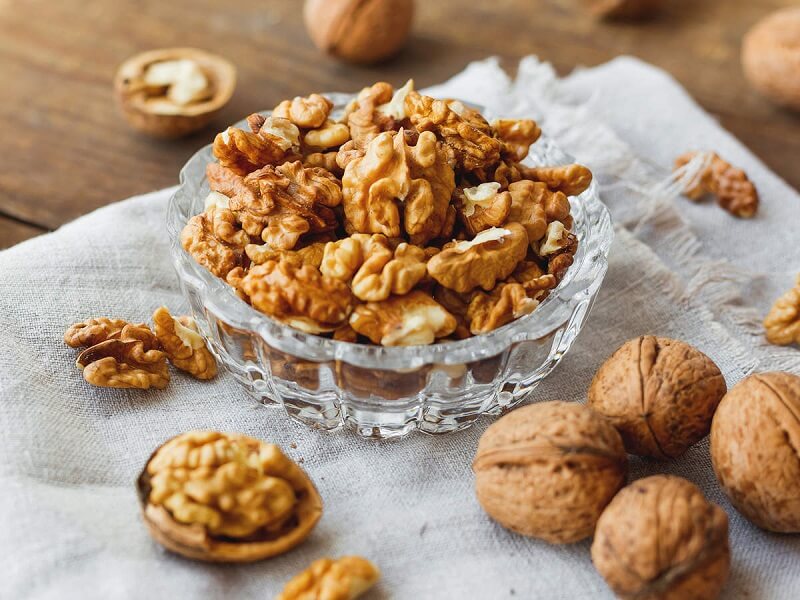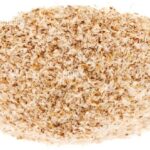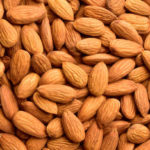Dear Readers, With their healthy properties, walnuts are a popular in-between snack. However, although they are healthy, you should not eat too many of them. In the following, we will explain why this is so.
Walnuts are one of the most popular nuts and one of the local superfoods. However, many refrain from eating it due to its high-calorie content.
Things to know about walnuts
Walnut is a plant genus that comes from the walnut family.
Most are nut trees, the fruits of which are sometimes very important for the economy.
There is also the black walnut, which is cultivated less frequently.
They are rich in omega-3 fatty acids, from which anti-inflammatory substances are formed. The proportion of fatty acids in walnuts is higher than in other nuts. Eating a balanced diet high in omega-3 can slow the growth of cancer cells, especially breast cancer.
In the supermarket, you can buy both whole nuts and already-shelled nuts. In particular, the shelled walnuts can be easily integrated as a snack between meals or as a topping in muesli or salad.
Especially in the winter months, many people reach for walnuts in addition to oranges and tangerines. Walnut trees grow all over the world.
The healthy nut contains the following ingredients:
- Vitamin A
- Vitamin B1
- Vitamin B2
- Vitamin B3
- vitamin C
- vitamin E
- potassium
- zinc
- magnesium
- iron
- calcium
- lecithin
- antioxidants
- Omega-3 fatty acids
Walnuts are 70 percent fat. These are monounsaturated and polyunsaturated fatty acids.
Many people avoid eating nuts out of fear that it might make them fat. However, your body can hardly break down the fat from the nut, which is why it excretes a large part of it undigested.
Healthy Effects of Walnuts
Walnuts bring with them some healthy properties. Nutrition recommends eating around 30 grams of walnuts every day.
That’s about the equivalent of a handful of nuts. In the following, you will find out why it is also worth eating them and why walnuts are so healthy.
Lower cholesterol levels
If you eat walnuts regularly, you can lower your cholesterol levels by about five percent.
If you integrate walnuts into your diet, you will lower total cholesterol and in particular the bad LDL cholesterol.
The high amount of polyunsaturated fatty acids, magnesium, and fiber can thus reduce the risk of cardiovascular diseases. This is confirmed by the evaluations of several studies from the US area.
It is enough if you eat about 67 grams of walnuts a day. The fact that the participants in the studies did not gain weight despite the high-fat content of the nuts is particularly interesting.
In some cases, the subjects even lost weight. Walnuts should therefore be part of a body-conscious and healthy diet. They also have a filling effect and reduce your cravings.
You can improve your brain power
You may be familiar with trail mix, which consists mostly of different nuts.
This is not without reason, because the nuts contain lecithin and choline. These are building blocks of messenger substances that your brain needs for its performance.
So you can always reach for delicious nuts while studying or working if you want to be more efficient.
A diet with a six percent share of walnuts can also reverse the decline in motor and mental performance with age. The bottom line is that walnuts can increase a healthy lifespan.
Lower the risk of coronary heart disease
You can reduce your risk of coronary heart disease by 30 percent by eating a handful of walnuts every day.
This was the result of an analysis from England and Norway with a total of 29 studies and more than 800,000 participants.
Your blood pressure will be lowered
The mono and polyunsaturated fatty acids have a positive effect on your circulation and heart.
One of the reasons for this is that healthy nuts keep your blood vessels elastic. You can improve your blood flow by eating it and counteract high blood pressure.
You can reduce stress
A study shows that participants who eat walnuts and walnut oil react better to stressful situations than those who have not eaten nuts.
This is due to the vitamin B6 contained in the walnut. This vitamin protects you from tiredness and nervousness and can also improve your ability to concentrate.
Better chances of prostate cancer
If a man has been diagnosed with prostate cancer, he should be eating healthy anyway. This also includes many vegetable fats that should be integrated into the diet.
These fats are also found in walnuts. Due to the polyunsaturated fatty acids in the nut, those affected can reduce the risk of dying from carcinoma in an advanced stage.
They prevent diabetes
It is best to integrate the healthy nut into your daily diet. This is how you can prevent type 2 diabetes.
In addition, experience has shown that people who are already ill can improve their insulin levels by eating walnuts.
Walnuts contain a lot of proteins
If you are vegetarian or vegan, you can cover your protein requirements with walnuts, among other things. 100 grams of walnuts contain 15 grams of protein.
This makes the nut an excellent source of vegetable protein. They are also relevant for muscle building, as they also provide you with healthy carbohydrates and fats.
Side effects of walnuts
Consuming walnuts can also pose risks. We will present these to you in more detail below.
Excessive consumption is bad for the kidneys
Walnuts are very tasty and sometimes we tend to overeat them.
Stick to the recommended daily dose of 30 grams to avoid gaining weight. This amount is equivalent to about 200 calories.
Like many other types of nuts, walnuts also contain oxalic acid. If you eat large amounts of walnuts, you will damage your kidneys in the long run.
The acid is slightly toxic and deprives your body of the mineral calcium. This creates small crystals of calcium oxalate, which accumulate in the kidneys, for example.
Sensitivity to serotonin
Walnuts consist mostly of proteins and fats. However, the protein in nuts contains a lot of serotonin.
This is a hormone that can have a positive effect on your mood. Therefore, serotonin is also referred to as the happiness hormone because it can promote your well-being and has a calming effect.
So if you are sensitive to this hormone, you should be careful when eating walnuts. Otherwise, the nuts may give you a headache.
The nut has strange spots
You stored walnuts at home and now they have dark brown to black spots? Then you shouldn’t eat them anymore.
These dark spots can be an indication that the nut is infected with poisonous fungi. These fungi can attack the outer shell and infect the nut from the inside.
They then form their poison in the nutshell. Since it is difficult for you to recognize, you should under no circumstances eat the green shell of the nut.
Likewise, the fungus can attack the walnuts after you have stored them. If you notice dark spots on the nuts, separate them from the healthy walnuts and throw them away.
If you eat the nuts anyway, the toxins they contain can lead to nerve spasms. Therefore, check the nuts at regular intervals after collecting them if you have stored them in the cellar for a long period of time.
Be careful when collecting with the dog
If you are out and about with your dog and want to collect walnuts in meadows or in forests, you should take a closer look.
If he eats a nut that is infested with the poisonous fungus, it can seriously poison him. In the worst case, the poisoning can also be fatal for your dog.
The following symptoms indicate that your dog is poisoned:
- Tremors, convulsions, or vomiting
- Your dog cannot be touched
- Your dog falls and stumbles
Use of walnuts
You can add the healthy nut to a variety of dishes. Salads are good for this.
You can also use walnuts in baking or as a topping in muesli. Or you can eat them as a healthy snack while you work or study.
Save walnuts
It is best to store shelled walnuts in an airtight container or bag.
On the other hand, you can drape whole nuts with their shells on a plate or in a bowl with a clear conscience. For larger quantities, you should store them in a cool, dark, and dry place in an air-permeable bag.
Check the walnuts regularly for external changes so you can separate the moldy nuts from the healthy ones.
Shelf life of walnuts
Whole nuts in shells have a shelf life of about a year. If you have already removed the peel, they will keep in an airtight container in the fridge for about four weeks.
They last even longer in the freezer. The bitter taste and rancid smell will tell you when you should stop eating the nuts.
However, there are also walnuts that generally have a bitter aroma. If you notice mold on the nuts, you should throw them away immediately.













Leave a Reply